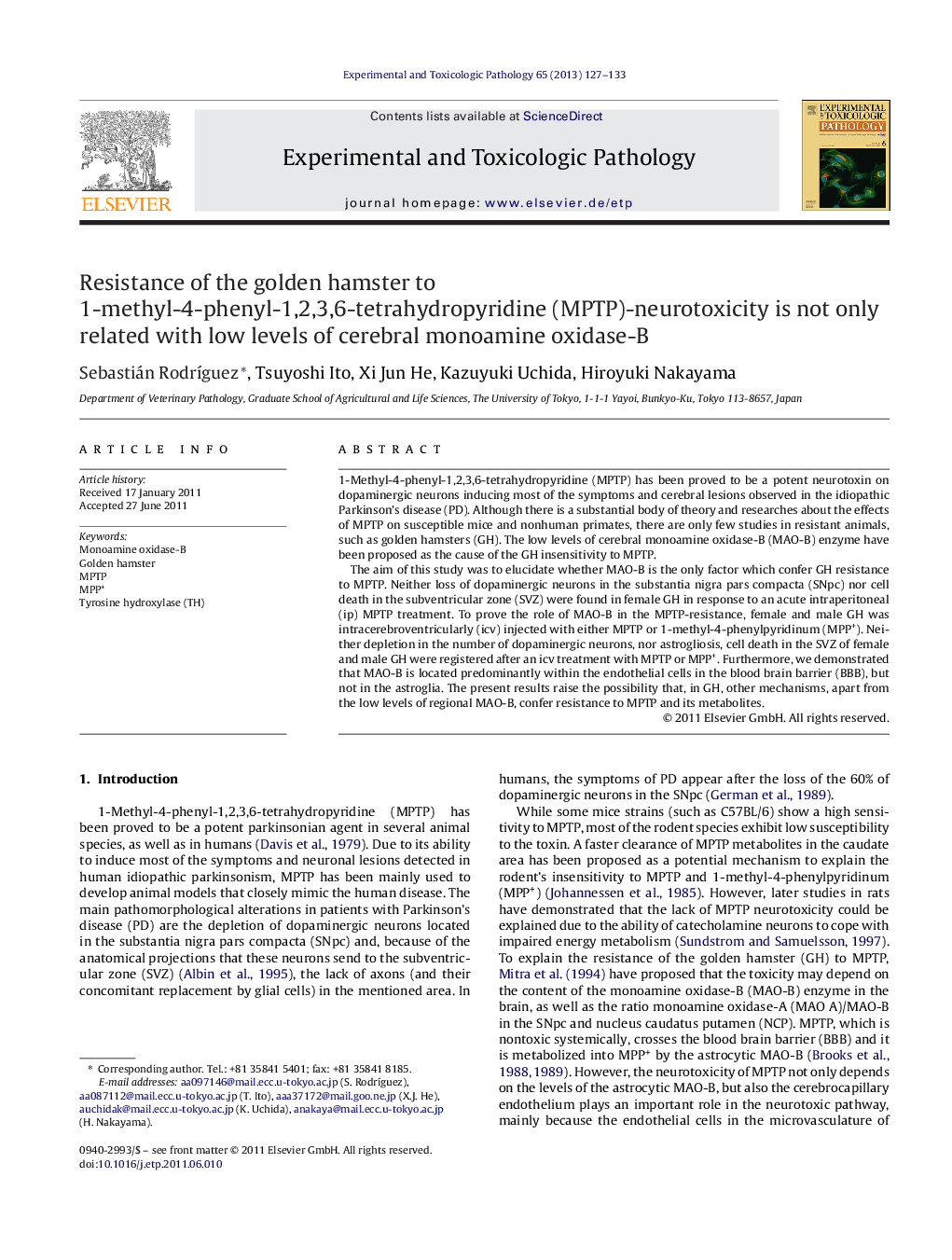| Article ID | Journal | Published Year | Pages | File Type |
|---|---|---|---|---|
| 2498906 | Experimental and Toxicologic Pathology | 2013 | 7 Pages |
1-Methyl-4-phenyl-1,2,3,6-tetrahydropyridine (MPTP) has been proved to be a potent neurotoxin on dopaminergic neurons inducing most of the symptoms and cerebral lesions observed in the idiopathic Parkinson's disease (PD). Although there is a substantial body of theory and researches about the effects of MPTP on susceptible mice and nonhuman primates, there are only few studies in resistant animals, such as golden hamsters (GH). The low levels of cerebral monoamine oxidase-B (MAO-B) enzyme have been proposed as the cause of the GH insensitivity to MPTP.The aim of this study was to elucidate whether MAO-B is the only factor which confer GH resistance to MPTP. Neither loss of dopaminergic neurons in the substantia nigra pars compacta (SNpc) nor cell death in the subventricular zone (SVZ) were found in female GH in response to an acute intraperitoneal (ip) MPTP treatment. To prove the role of MAO-B in the MPTP-resistance, female and male GH was intracerebroventricularly (icv) injected with either MPTP or 1-methyl-4-phenylpyridinum (MPP+). Neither depletion in the number of dopaminergic neurons, nor astrogliosis, cell death in the SVZ of female and male GH were registered after an icv treatment with MPTP or MPP+. Furthermore, we demonstrated that MAO-B is located predominantly within the endothelial cells in the blood brain barrier (BBB), but not in the astroglia. The present results raise the possibility that, in GH, other mechanisms, apart from the low levels of regional MAO-B, confer resistance to MPTP and its metabolites.
